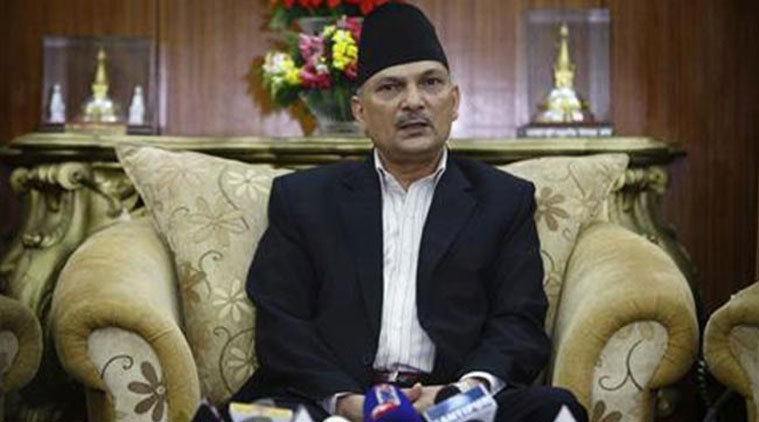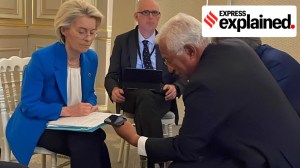Bhattarai’s new political force in Nepal: Has he changed spots once too often?
Bhattarai began his politics parallel to his student life, first in Chandigarh and then at JNU in the decade between the early 70s and the early 80s, as a human rights activist.
 Baburam Bhattarai (Source: Reuters photo)
Baburam Bhattarai (Source: Reuters photo)
No other politician has changed his political colours so rapidly and each time won more recognition and enjoyed better prospects. However, this time as he embarks on a new political party, Baburam Bhattarai may not be as lucky. Bhattarai began his politics parallel to his student life, first in Chandigarh and then at JNU in the decade between the early 70s and the early 80s, as a human rights activist.
After working as an urban planning consultant for few years, Bhattarai a PhD from JNU, became part of Nepal’s parliamentary exercise between 1991 and 1996. However, he was soon disillusioned and together with Pushpa Kamal Dahal ‘Prachanda’, authored a bloody war against the state with the objective to transform Nepal into a republic with the proletariat ruling it.
Prachanda led the guerrillas and the party that derived its name from Mao Tse Tung while Bhattarai became the head of the ‘Peoples government’. Destruction of the ‘old state’, those who represented it and its physical infrastructure was planned by Bhattarai and executed by the guerrillas under Prachanda.
At the end of 10 years, after 17,000 people lost their lives and public and state property worth three billion rupees had been destroyed, the Maoists decided to join the ‘peace and democratic process’, with India coming forward to bring the Maoists and seven other parties together through a 12-point agreement that endorsed the Maoists republican agenda.
Prachanda and Bhattarai thereafter occupied the chief executive’s position and their comradeship remained intact with Bhattarai always accepting the former as his boss. However, in late September last year, Bhattarai quit the party and began to oppose the new constitution that he had played an important role in preparing. Soon after, he declared that he would be a communist no more.
Last week, he announced a 35-member committee of people who belonged to NGOs, or were retired bureaucrats and security personnel-most of them would have figured on the list of his class enemies earlier-as the first step to towards the formation of a political party that he calls, the ‘New Force’.
He now faces many uncomfortable questions about his past actions as a communist and the reasons for changing his spots after decades. Whether his New Force will come into existence as a viable political party remains to be seen.
Photos





- 01
- 02
- 03
- 04
- 05
































